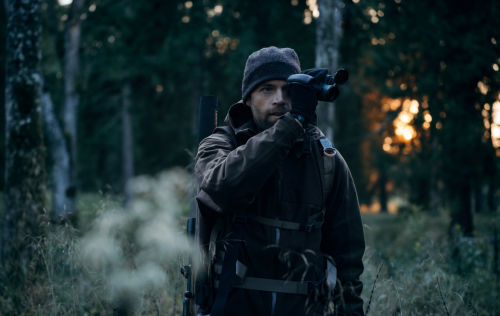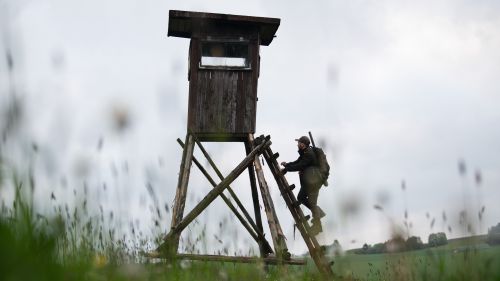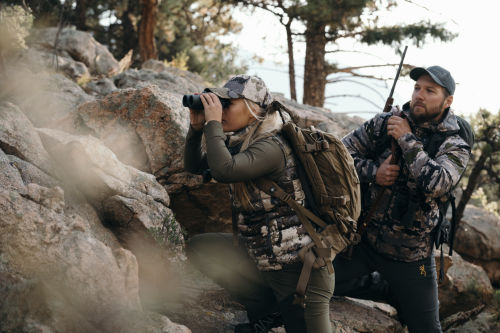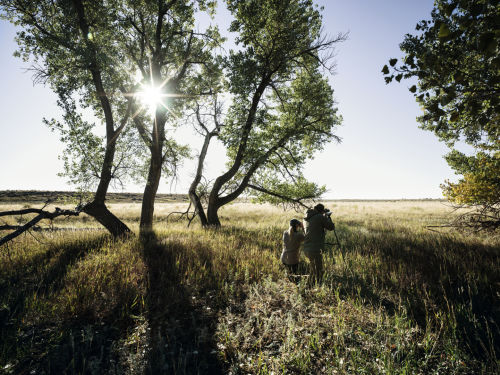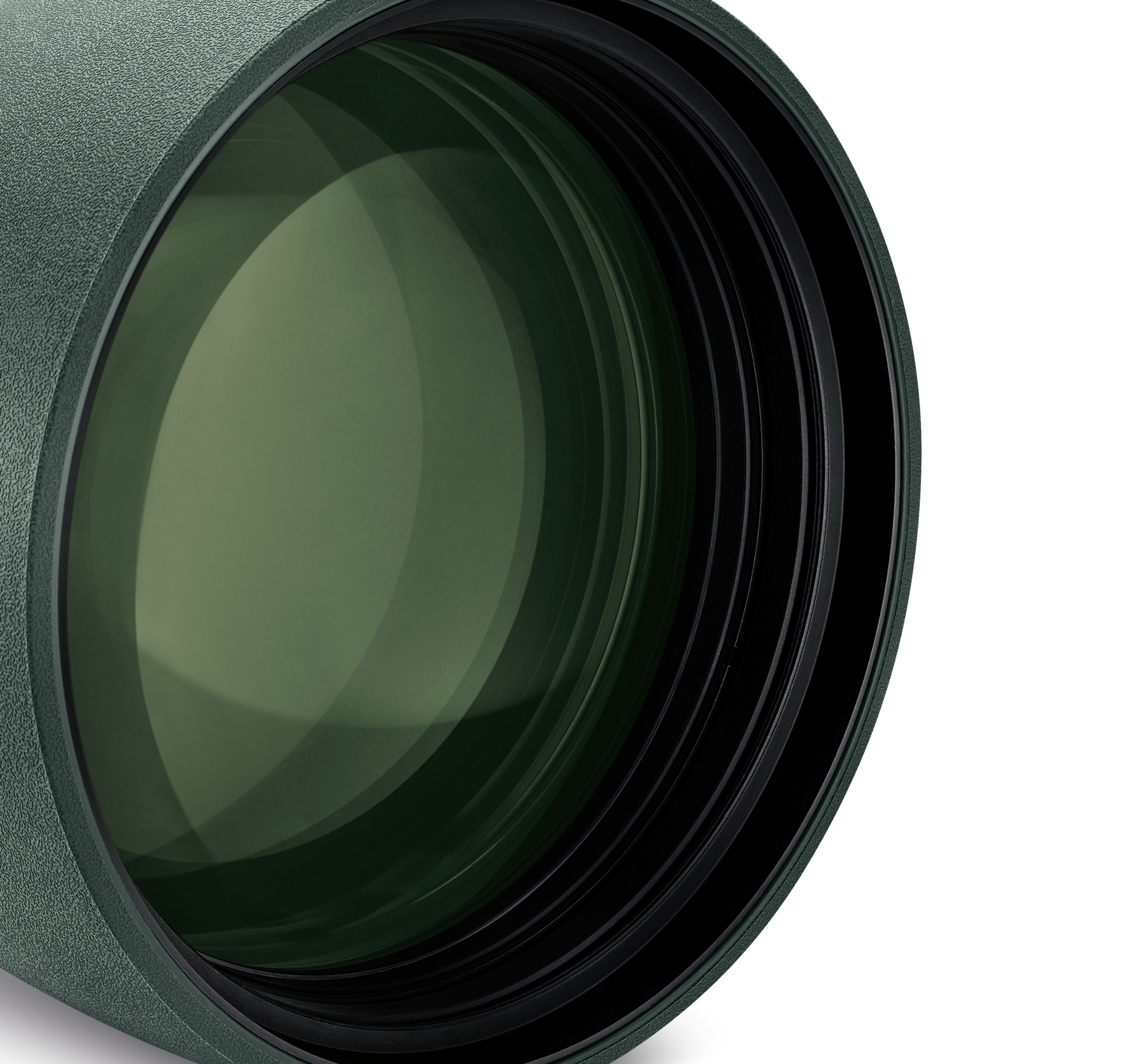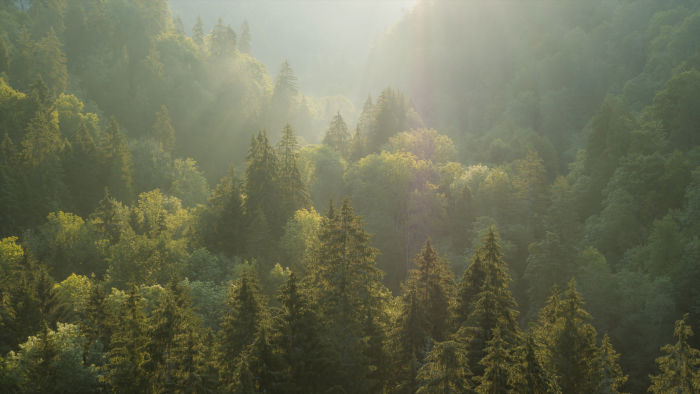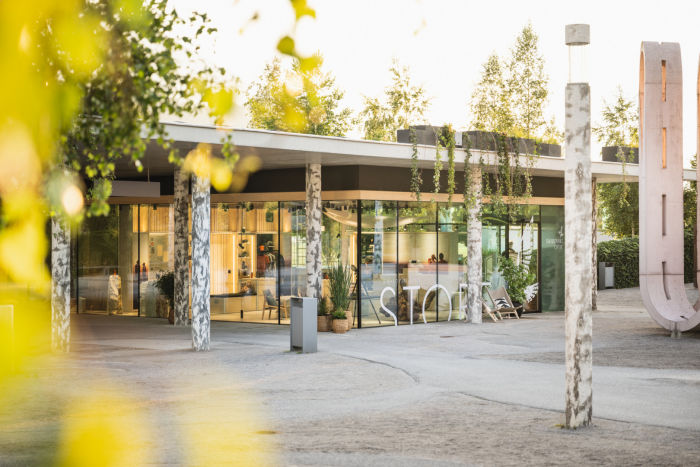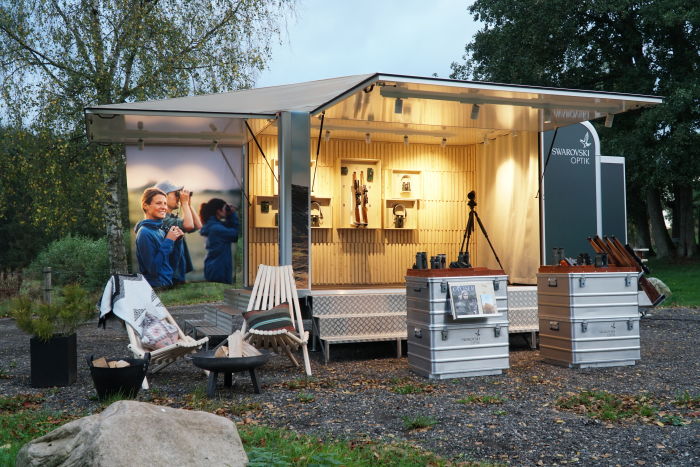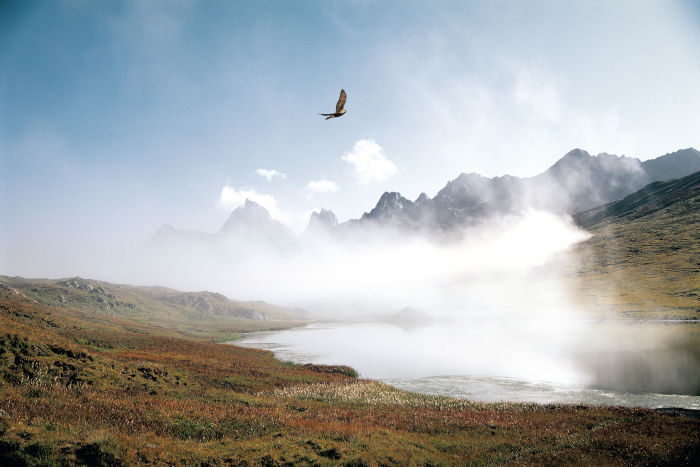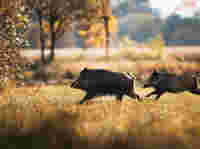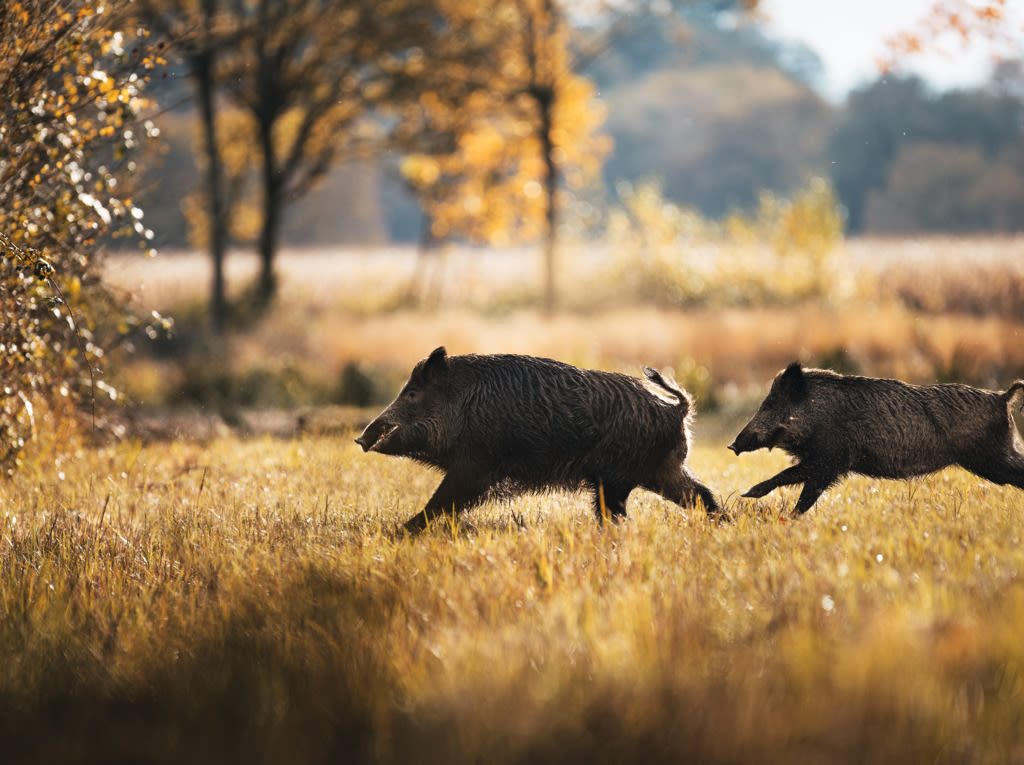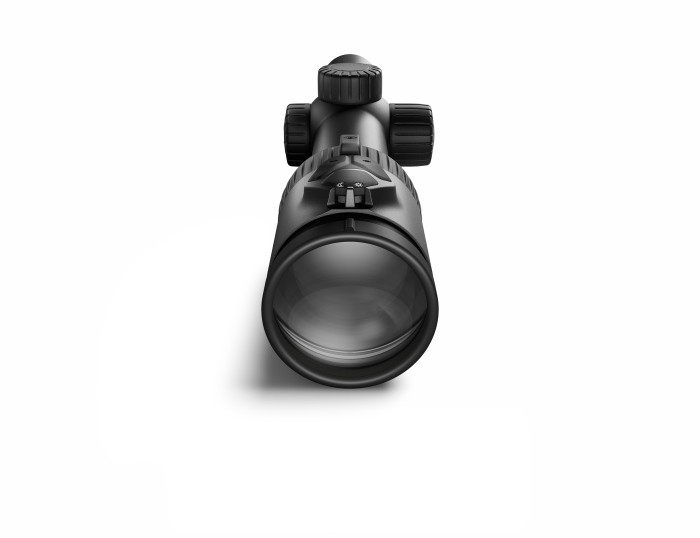Driven hunts take place all over the world, but in France they are something special. A diverse hunting culture has developed over the centuries with different customs and rituals. Join us on a driven hunt in Alsace.
The day starts with a cup of excellent coffee. The thermos flask is passed around and everyone helps themselves to a cup. The atmosphere is “excitedly relaxed,” as one of the 30 hunters remarks laconically. Outside the hunting lodge, we gather around our guide.
He tells us about schedules, times, and licenses, because here in Alsace-Moselle, in northeastern France, near the German border, safety is paramount when hunting. This is particularly true of driven hunts. These are especially popular with French hunters, and they are urgently needed because the wild boar population is exploding.
The 30° rule is a well-known law of the “battue” in this area. It specifies how hunters should align themselves – five steps toward the next hunter, then three steps straight ahead. This creates the perfect angle. Our guide admonishes us: “Shots may only be fired within this 30° zone.” It’s a little odd, but it seems to work.
IT’S COMPULSORY TO CARRY A HORN WHEN ON A DRIVEN HUNT IN FRANCE.

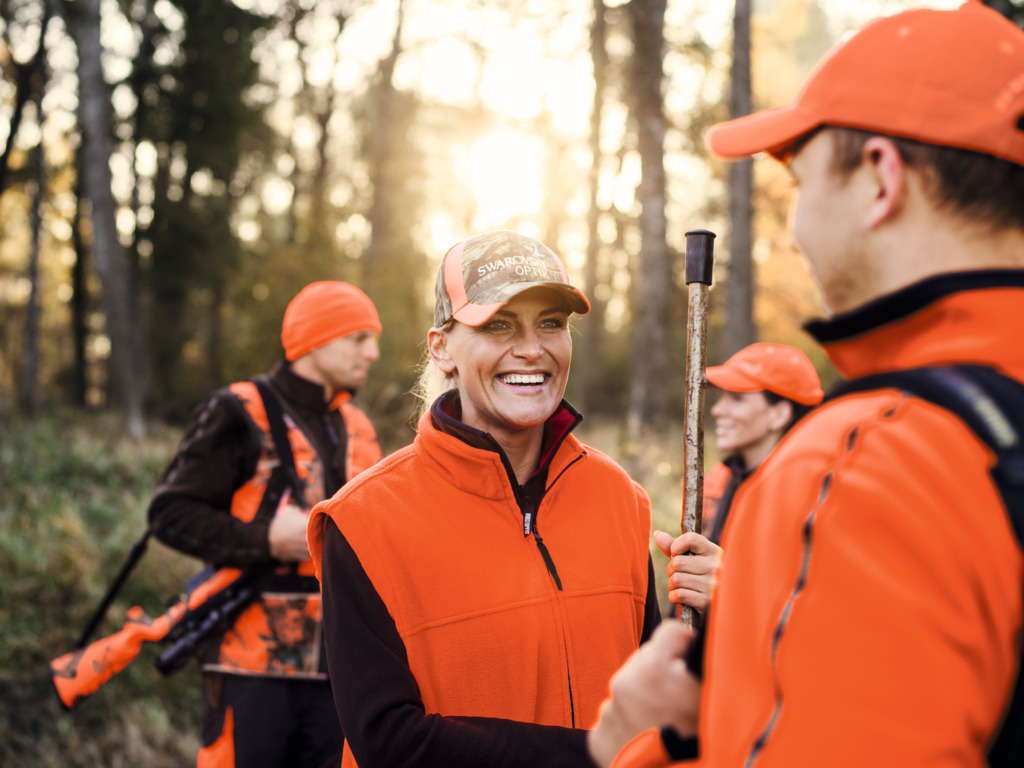
HUNTING IN GREAT COMPANY
In France, 80% of game bagged in a year is hunted in a shooting party. Hunting is one of the few activities that brings together people from every class of society. La chasse, une liberté: freedom, equality, fraternity. We set off in our bright orange vests, armed with our simple horns so that we can sound the alarm in an emergency.
Now a long blast on the horn indicates that we’re on our way. We split up and take our places in the forest. The drivers use their dogs to drive the sows out of the thicket. It’s not long before the dogs start barking and the driven hunt group tenses in anticipation. Three short blasts of the horn tell us that the sows are on the move.

Two shots are fired nearby. Another follows a moment later. Then we see a boar charging through the forest. As we find out later, it is also pretty well armed. My neighbor has a clear view. He shoots, and the black boar rolls to the ground.
We take a few breaths, then the arrival of the next animal is announced by the crashing and barking of the dogs. After two hours, the end of the hunt is signaled by three long blasts on the horn.
WILD BOAR AND RED WINE
Tired but happy, we return to the hunting lodge and gather around our prize. We pay tribute to the eight boars. Two of them are massive, weighing in at around 85 kg (187 lbs).
Slowly, we come back down to earth, and what began as a group of strangers becomes a group of friends around the dinner table. Everyone recounts their stories with much waving of hands and copious amounts of red wine – after all, we’re in France!
The Z8i 0.75-6x20 is the ultimate driven hunting device to ensure you never miss any of the action. With 0.75x magnification for a 30% larger field of view and the new distraction-free d-I reticle.
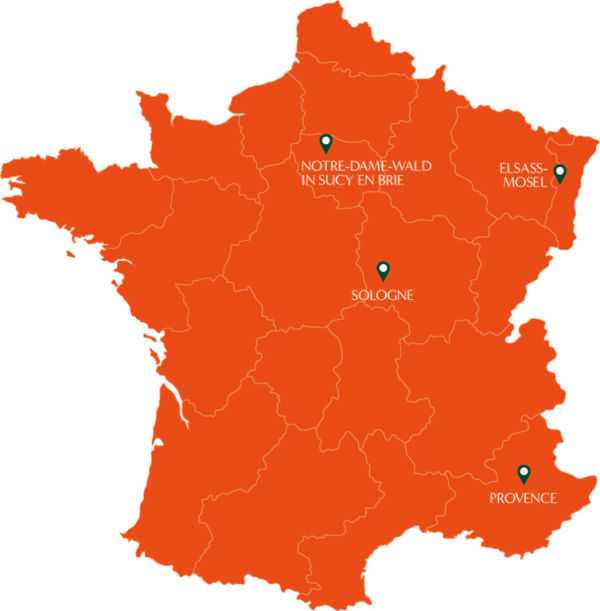
HUNTING IN THE SOUTH OF FRANCE
France has a wide range of hunting customs and rituals. In the south, for example in Provence, lookouts are stationed along the game passages during driven hunts, and the hunters leave most of the work to the hounds. This type of hunting is very time-consuming and takes several hours or the whole day. Many hunters rely on semi-automatic hunting firearms and target optics with a large field of view to keep up with the fast pace of the action.
The use of raised hides is a relatively new kind of driven hunt that originated in Germany. It allows for a large area to be hunted, sometimes extending over several hectares. With this type of hunting, hunters don’t have to follow the 30° rule because they are shooting downward from an elevated position.
FOUR SPECIAL HUNTING GROUNDS:
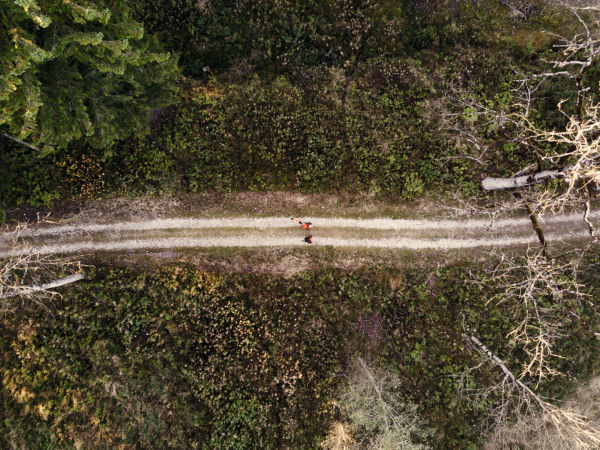
NOTRE DAME FOREST IN SUCY EN BRIE
Connecting two large forests, this corridor is just 25 km (15.5 miles) from downtown Paris. This local recreation area is home to huge numbers of wild boar.
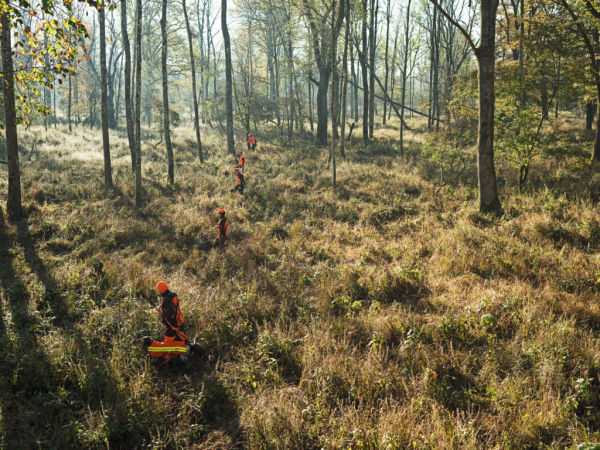
PROVENCE
Local winegrowers are under pressure because of the rising wild boar population, so it’s important to have regular driven hunts in the region.
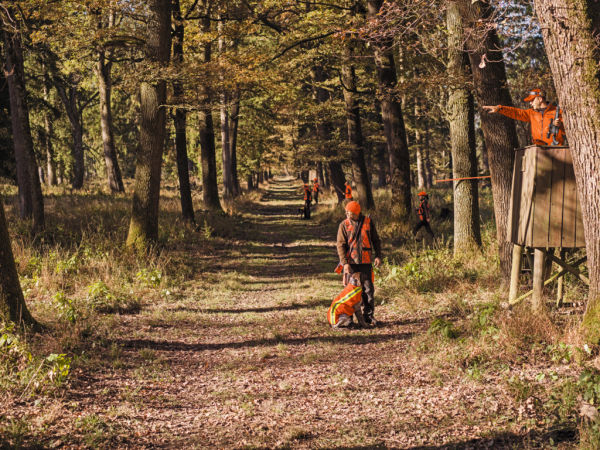
SOLOGNE
During the fall and winter months, wild boar hunts are held almost weekly in this region of central France.
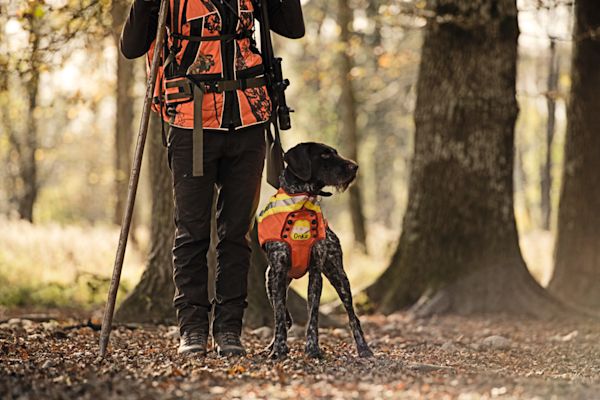
ALSACE-MOSEL
One or two driven hunts are held here between mid-October and the end of January. Otherwise, stalking is a popular form of hunting in this area.
HUNTING AND THE LAW IN FRANCE
WHAT YOU NEED TO KNOW
You can only hunt with a valid hunting license, available at chasseurdefrance.com. You also have to carry a confirmation from the Fédération Départementale des Chasseurs and your liability insurance. In addition to this, you should also think about obtaining a European Firearms Pass and – if you are hunting with your dog – an EU pet passport.
